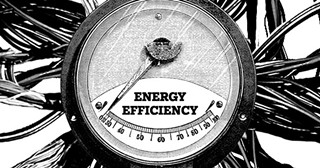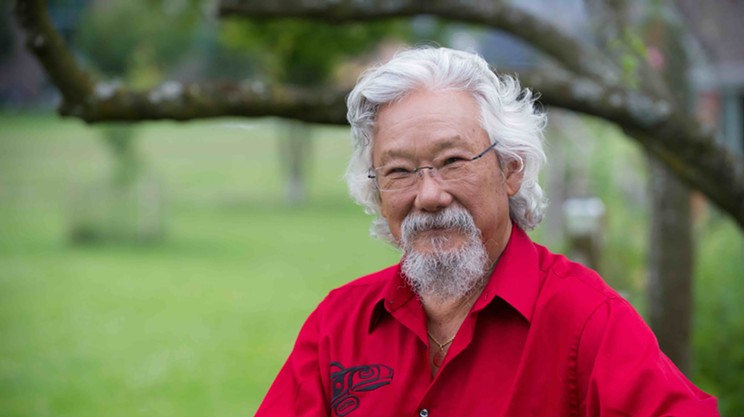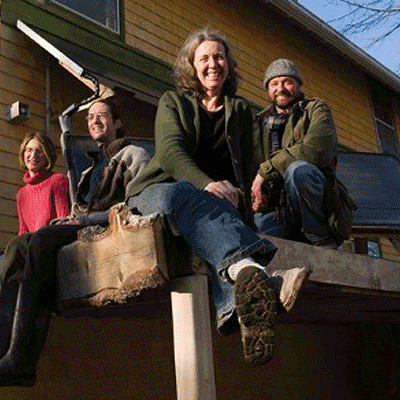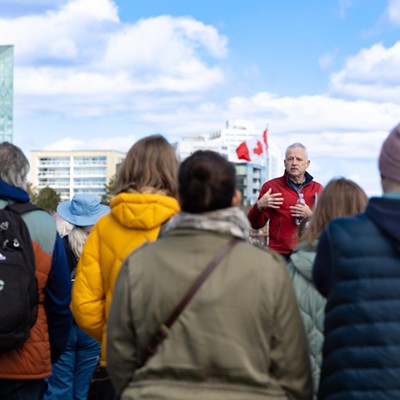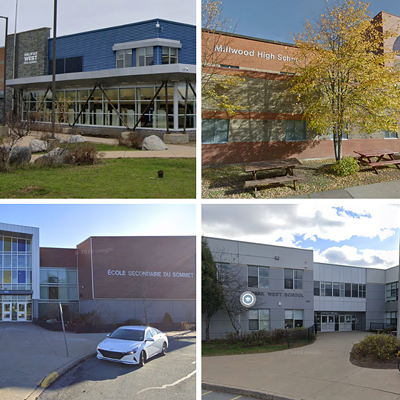A year ago this month the province created Efficiency Nova Scotia (ENSC), "an independent administrator to help Nova Scotians cut electricity use." Responsibility for our energy efficiency will no longer be in the hands of a government department, but an independent body. Great idea.
So far, ENSC is just ramping up: recruiting board members, hiring staff, making its logo and website, buying insurance, hiring an auditor, that kind of thing. But whenever it gets rolling, such a body could help us simultaneously save money and reduce our environmental impact. And it's learning new tricks from the most progressive energy efficiency programs on the continent: Oregon Energy Trust and Efficiency Vermont. Both have shown how to get public buy in to your state-of-the-art electricity-saving schemes. Like Leo DiCaprio, playing Howard Hughes, said: It's the way of the future.
With the creation of ENSC, saving energy is a whole new ball game. Really, electricity could be just the start. Consider that 58 percent of our emissions come from non-electric sources like transportation, heat and industrial processes. The new agency provides myriad opportunities to broaden our climate change mitigation efforts beyond electricity. Alas, so far, no one seems particularly interested in grabbing those opportunities.
For example, ENSC could focus on alternative power sources like solar thermal, solar air, solar hot water and geothermal. The province's proposed feed-in tariffs, which provide a guaranteed income for wind producers, don't apply to solar sources. "That's a huge mistake," says Brennan Vogel, Ecology Action Centre's energy coordinator. "It overlooks the proven success of solar [incentive] models elsewhere in Canada and the world. Halifax has the best solar potential of any city in Canada."
Vogel adds that in order to get any financial benefit from producing and selling solar energy, you'd have to form a co-op with your 24 best buds and sell multiple forms of renewable energy. But ENSC could at least help individuals set themselves up to produce their own solar energy, maybe enough for their neighbours too.
Or, it could finally give the province a leader in sustainable transportation. Transportation accounts for about a quarter of the province's greenhouse gas emissions. Yet, to date the province is doing nothing to cut those emissions. Well, actually, it's doing research.
"We're examining the approaches and best practices taken in other jurisdictions," Steve Smith says. He's the media guy at Transportation and Infrastructure Renewal, the lead department in this research. "The goal is to identify where the greatest decreases in greenhouse gas emissions can be had, cost effectively."
Smith adds that the research is necessary because no province in the country yet has a sustainable transportation plan. His department hopes to have one by 2011.
Jen Powley, sustainable transportation coordinator at Ecology Action Centre, says that 2011 is a year later than the province promised. "There are eight or nine departments involved in transportation issues altogether," she says. "There needs to be more integration and there needs to be provincial leadership." Powley offers British Columbia, Saskatchewan and Quebec as examples of provinces that have effectively reduced greenhouse gas emissions by centralizing provincial sustainable transportation planning.
And, she says, once again our good friends at ENSC have a golden opportunity to lead sustainable transportation here. "Point four of the act legislating Efficiency Nova Scotia says they can deal with transportation," she notes. "Using the word 'can' is very deliberate; it had to be, any good policy writer would pick it up. It leaves the window open." In other words, it's a built-in excuse to do nothing about sustainable transportation.
Hugh Fraser, communications advisor at ENSC, says that his agency "only has jurisdiction in electricity, because it's funded from the electricity bill." Before Efficiency Nova Scotia can do anything much beyond telling us to switch light bulbs and install insulation---before it can take on that 58 percent of emissions that are non-electrical ---it needs more direction and funding from the province.
And where will that money come from in an era of increasingly stretched budgets? Let's hope Mr. Dexter does a better carbon tax sell than Stéphane Dion.
Chris Benjamin is the author of Drive-by Saviours, a novel.

